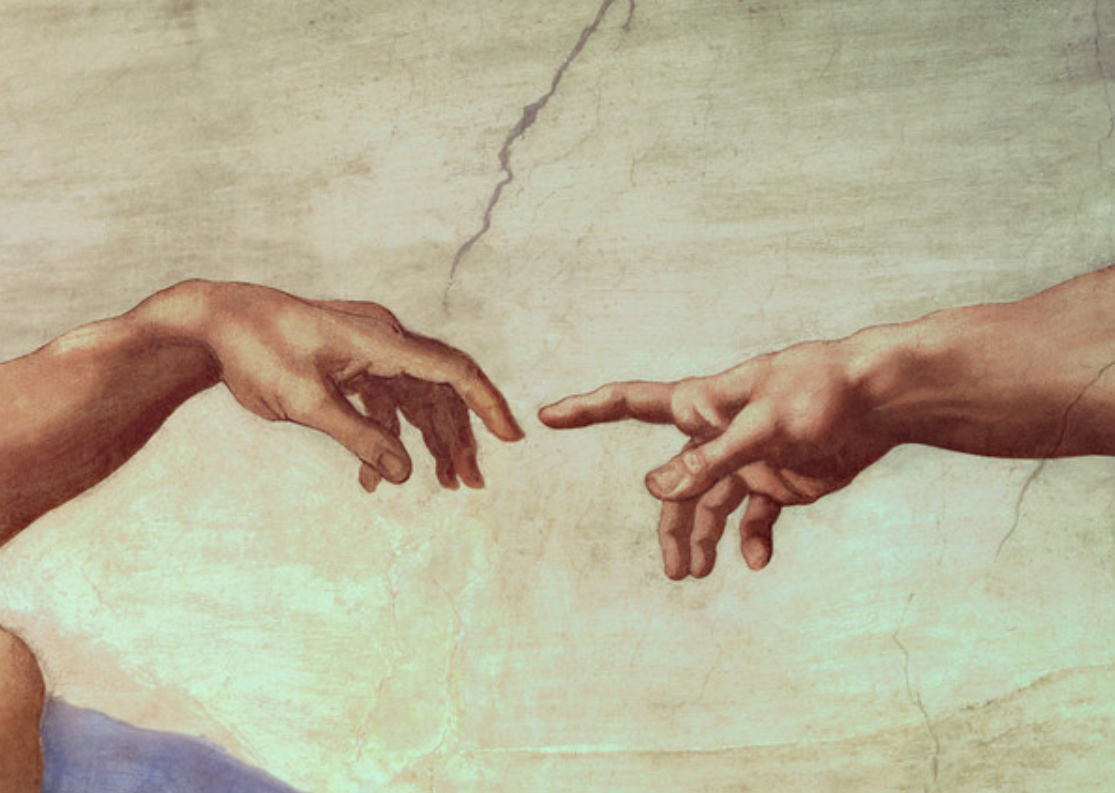
The cashier at the checkout counter smiles as she hands you your change.
It’s a thin smile, the product of countless similar exchanges. As you walk out with your tube of hemorrhoid cream your mind, unprompted, begins to ask:
“Was there disgust in that smile, or judgement, or perhaps even mockery??”
These interpretations all have 2 things in common: they’re all speculative and they’re all negative.
— — — — —
For every event that takes place in one’s life there are myriad interpretations. The interpretations we eventually land on are usually arbitrary, becoming the “true” version of events once we lock them in place while in a certain, usually default, frame of mind. There is a literal multiverse of possibilities wrapped up in every event, especially those involving other humans.
These sorts of questions arise naturally out of a desire to parse the human world for information about the states of mind of others. We mine our social past with a diligence and purity of focus that we rarely apply to other areas of our lives. When was the last time you spent hours obsessing over whether your pet goldfish was angry with you or not?
Our desire to do this is eminently understandable given our evolutionary past. Knowing the intentions of our neighbors could be the difference between life and death, even now. People who have trouble detecting murderous rages in others have a greater tendency to be, well, murdered.
All of us suffer under the yoke of this propensity, however some of us are much more vexed by the implications of the interpretational variety that life presents us with. The extroverts of the world can feel the social pressures of life acutely because, for them, not connecting with other people is excruciating. Even when they fear social judgement, they are drawn to people. They therefore make their peace with the uncertainty of interaction and forge ahead with varying degrees of success.The interpretation of social events that extroverts often arrive at, let’s call it The Extro Version, can vary widely and often overlap with those of introverts.
For instance, their challenges can include: a potential for overconfidence in their points of view (insidiously for extroverts, this is bolstered by the many iterations of experience they’ve accumulated), or a paranoia as their too-trusted interpretations of events drive them towards feelings of futility at the seeming inevitability of the repetition of negative encounters.
We introverts face those same struggles along with an arguably more complex challenge in the social world. While we all begin at the same starting line, the extroverts quickly gain ground as they bounce from interaction to interaction, swiftly growing more comfortable in that space. The introverts are drawn to people too, but they are drawn just as strongly inward and often lag behind. This alone can lead to dark emotions for which there may seem to be no outlet. The mind of the introvert is built to internalize suffering and we often attempt the struggle alone. The versions of events as interpreted through the eyes of the introvert, let’s call it the Intro Version, is often inclined to settle on interpretations which induce — and are informed by — painful shyness and aversion.
It isn’t incorrect to say that the introverted state of being is a natural and normal way to navigate the world. Introverts are not always lonely people, we aren’t even always shy though we may seem more reserved. A more controversial claim often made, however, is that the fostering of fewer, deeper connections provides more satisfaction than the shallow connections that extroverts seem to continually make. Early humans, evolving in small hunter-gatherer groups, would encounter fewer humans in an entire lifetime than any one of us would during a morning’s commute; how then can one place objective value on acquaintance collection?
The “acquaintance collection” smear seems valid when the possibility of deeper connection without ponderous effort seems an impossibility, as it does to many introverts. But these arguments, as much as they are reinforced by modern maxims of self acceptance, ignore a critical fact also tied inextricably to our biology. The truth of our species is that nothing satisfies us more than connecting with other people. Connecting, especially with new people: the act of making friends. When introversion leads to a quality over quantity argument, a false dichotomy is implied. What if you could have the best of both worlds?
— — — — —
In years past, I would have written off the thought experiment we are now conducting as, at best, irrelevant and, at worst, insulting and cruel. I might have said that there was an intrinsic beauty to loneliness or, more defensively: “People suck; why bother.” And people DID suck. They sucked because my multiverse of interpretations of events always collapsed into a reality influenced by The Intro Version. It almost always said: “the cashier’s smile is anything but friendly.”
But even in those days I had experienced true connection and real friendship. Unless I could believe that the world held no more potential friends within it’s billions, I should more accurately have said: “Of course I WANT to connect with people. But I CAN’T.” Even that would have been incomplete, however. The real truth, both more empowering and more frightening, would have been: “Of course I WANT to connect with people. But I don’t know how!”
The evolutionary biological need to reduce the quantum states of interpretation into a single guiding version of events manifests itself in everyone. But the frame of mind of the thinker plays a large role in what version wins. We introverts, with less time in the pressure cooker of human interaction and less natural inclination to seek it out, often find the conundrum of social interaction so hard to untangle that we pursue an avoidance strategy. We lock ourselves away as much as possible to avoid the stress that comes from being around “new” people.
But this strategy has an obvious flaw. No matter the tendencies of the individual human, all humans have a deep need for companionship and human closeness. We all want to connect, but some of us don’t know how. The modern era makes it easier for us not to have to learn how either. We can stay indoors and behind screens indefinitely, substituting virtual connection for the real thing. But it doesn’t bring satisfaction. We know; we’ve tried.
But the unforgiving logic persists: connection brings joy and a lack of connection brings pain. Said differently: connect or suffer. Reduced thusly, the choice becomes much simpler.
And lest I seem to be conflating simplicity with ease, I must admit that I explored the suffering route quite thoroughly. For years I systematically deleted myself from my friends, my family, and my relationships. I chased the illusory beauty of the aloneness I once held sacrosanct as deep into myself as I could go. But all I found there was a further, unfathomable depth of sadness. Still, I lived there for years.
Eventually, there was nowhere else to go. I could stay down in the depths seeing only darkness reflected in the world around me, or I could back up to first principles and begin to rebuild my relationship with life. I suppose I had a third option too: I could die. The introverted core of me would love to say I figured it out alone, but I had friends, I had family. I had people who wouldn’t give up on me. I was lucky.
While they watched, worried, and supported, I found the courage to make the cognitive leap that led me out of my self-created hell. That very first leap was the scariest, and the most necessary. It was the act of changing “I can’t connect” to “I don’t know how to connect.”
“I don’t know how to connect” took me places that “I can’t connect” never could have.
“I don’t know how” raises a question that “can’t” does not, and questions require asking. Asking can yield answers, but answers we don’t know can only come from other people. In a beautifully circular way, people also ARE the answer to this particular question.
And the logic also persists. If you can conceive of myriad versions of events, and the events themselves can change in your memory depending on the interpretation you land on (and they can), then the events themselves must exist outside of any meaning that you create around them. In a very real sense, there is no objective meaning to any of it. Our stories about the world are not about the world at all: they are all about ourselves.
If we can create our own versions of events, then we find ourselves fully in control of the tenor of our lives. But with great power comes great responsibility, as a wise man once said. If there is no meaning, then any meaning we see is of our own creation. If we choose the meaning poorly and sculpt our actions around it, then we both sow and reap the outcomes. Before this revelation it is easy to see ourselves as caught in a storm of experience over which we have no control. Afterwards, we bear the terrible burden of creating for ourselves realities wherein all paths lead us towards joy, towards connection: inexorably towards people.
— — — — —
But no one is ever immune to their biology, no matter how great their understanding of it. The Intro Version is inescapable for those of us inclined towards it. Every event opens a tunnel to parallel worlds where the hated cashier shames us or wishes us ill. But it is possible, with awareness, attention, and action to reduce our slavish adherence to the negative versions of events that we often follow by default. Where we once were carried away to whatever new universe The Intro Version dictated, we can begin to find an ever increasing ability to choose.
None of this is to say that we must obsequiously strive toward our polar opposites for happiness. Not all extroverts are megalomaniacs, and not all introverts are hikikomori in training. But for those of us who are or have been chained to our specifically introverted suffering, and for whom a painful existence has been borne out of it, these are things that it is helpful to know. We aren’t trapped. We aren’t pitiful. We aren’t alone unless we choose to be.
Though I can seem very extroverted at times I’ll never be a true extrovert, nor would I want to be. It seems, frankly, exhausting. I accept many of my other introverted tendencies too, and I have a strong need for my alone time. But I’ve also learned the falseness of the “quantity over quality” dichotomy. We can have both.
Nowadays, the cashier’s smile is just a smile. And if it holds any of the negativity I once perceived by default, well that’s ok too. It doesn’t mean anything about me. It certainly doesn’t change the fact that whenever I feel lost in the winding pathways and cavernous expanses in my mind, when my self-imposed separation from people becomes a feedback loop of suffering, I can’t save me from myself.
Only you can.


